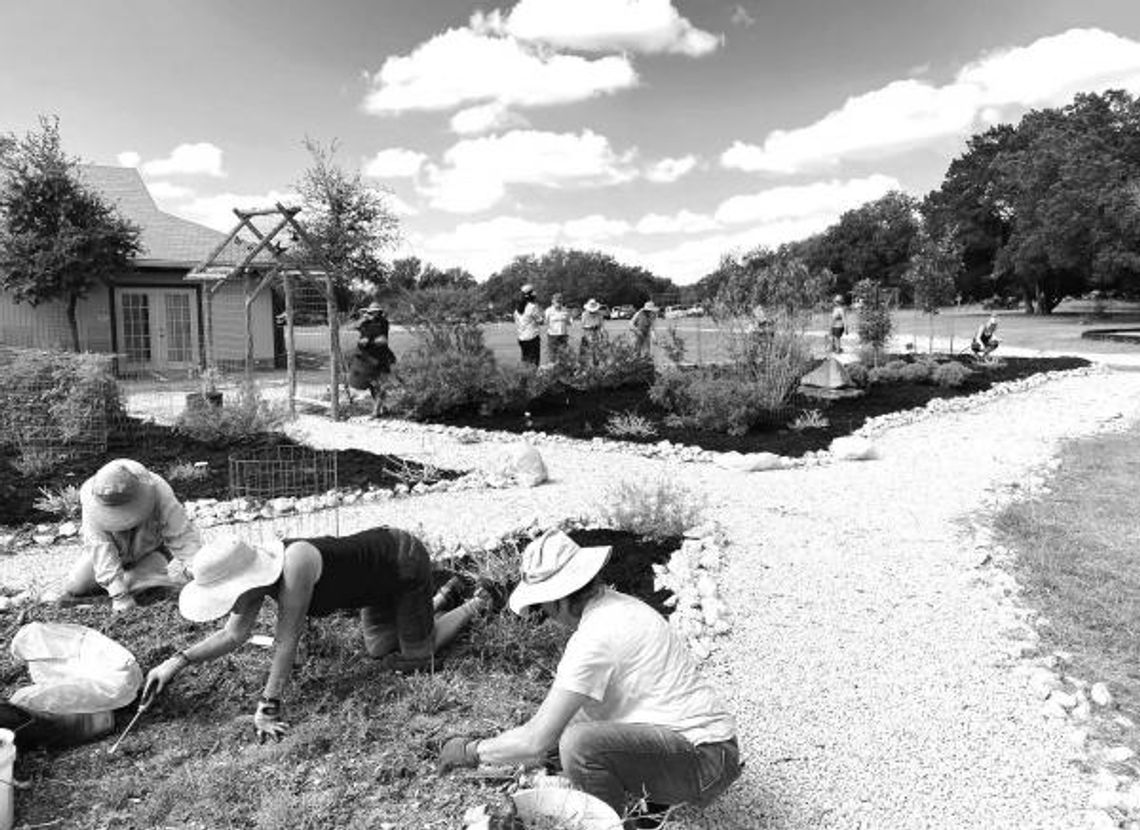With climate change affecting weather around the globe, including the current heatwave in the Hill Country, more and more people have taken an interest in plants.
It is no surprise plants play an integral role in conserving water and soil, but knowing which plants to plant and when can have a significant long-term impact on the environment, from country greenspaces to patio vegetable gardens and everything in between. The Hays County Master Gardeners offer a comprehensive 11-week master gardener training course to teach local horticulturally-minded growers how to maintain their land and gardens within the greater scope of the Hill Country climate.
“Our mission is to assist county agents as purveyors of scientific research- based information on gardening,” said Marilyn Love, the training and membership committee chair for HCMGA. “We want to give the latest scientific-based information. Not just what your grandma did — although a lot of that is good — but some of it is outdated or wive’s tales.”
Held once a year, the Hays County Master Gardeners training class aims to provide information on what works best for this area. Taught by Texas A&M AgriLife Extension Service specialists, staff and local experts, the master gardeners program offers 64 hours of instruction following Earth-Kind practices of landscape management covering soil and plant nutrition; insect, disease, and weed management; trees; vegetable and herb gardening; lawn care; plant selection; composting; and water conservation.
“It’s a really nice, quality class,” Love said. “In Hays County — in Dripping and San Marcos — we have a lot of people from other parts of Texas, especially Houston, who retire up here and gardening here is not like Houston at all. They don’t know what to grow.”
Love, who grew up in Dallas, lived in a variety of places including South America, Mexico, New York and Virginia before relocating to the Hill Country twelve years ago.
“When I moved back to Texas — especially this part — I had no idea what I could grow because it’s totally different from those places, where they have a lot of soil, a lot of rain, and it’s not so hot,” she said.
Love enrolled in the class in order to learn how to garden in Central Texas and manage the land her family had purchased. Now in her tenth year with the Hays County Master Gardeners, she has served as vice president and president of the organization and also teaches two of the offered sections of the course itself.
Master gardeners like Love are members of the local community who take active interest in the lawns, trees, shrubs, flowers and gardens in the area. They endeavor to understand the connectedness between plants and the environment, focusing on how to maintain healthy water and soil.
“The number one goal is to conserve water and protect the quality of water,” Love said. “That has to do with the practices you have about fertilizing and spraying for pests. One class, IPM (Integrated Pest Management) talks about using compost instead of synthetic fertilizers and using as many organic ways of controlling pests. Or just not using anything, but physically removing and other ways of controlling pests.”
The Hays County Master Gardeners Program is a volunteerbased program. Once certified, members work through the county extension office to provide horticultural- related information to their communities. The next program runs from Sept. 9 to Nov. 18. Classes typically meet twice a week on Tuesdays and Fridays. The 2022 class is using a hybrid model combining in-person and distance learning via Zoom.
Registration is currently open at hayscountymastergardeners. org. For more information, visit the website or call the Texas A&M Agrilife Extension Office at (512) 393-2120. Application deadline is August 19.
A pollinator garden at the library in Kyle.
.png)











